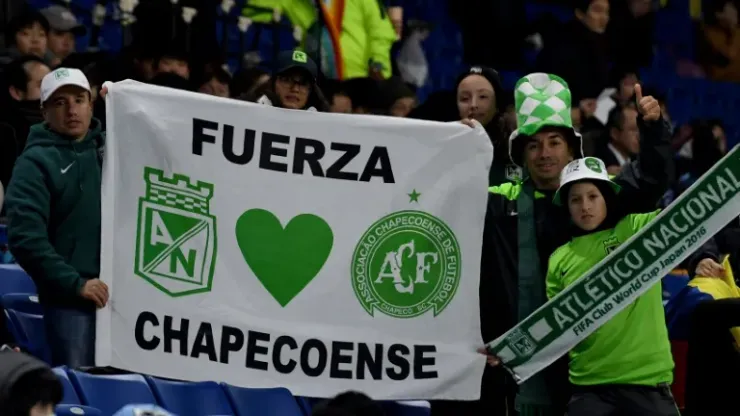Osaka (Japan) (AFP) – South American champions Atletico Nacional questioned football’s new video referee after the first ever penalty awarded under the system helped dump them out of the Club World Cup — and even had suspicions of offside.
The Colombians felt aggrieved after Hungarian referee Viktor Kassai used the new technology for the first goal in their shock 3-0 defeat by Japan’s Kashima Antlers on Wednesday.
In a ground-breaking moment, Kassai stopped play, ran to the side of the pitch and watched a replay, before blowing for the penalty which was converted by Shoma Doi.
Nacional were fuming as the foul in question, Orlando Berrio’s trip on Daigo Nishi as he ran towards an airborne free kick, had gone virtually unnoticed by the players.
The Colombian players continued to remonstrate with the referee as they trudged off, and their frustration will have been compounded as replays suggested Nishi may have been offside in the build-up.
“That decision was crucial because we were in control and it unbalanced us emotionally,” complained Nacional defender Farid Diaz. “It totally changed the game.”
The video system is being trialled in FIFA competitions for the first time at this year’s Club World Cup, although goal-line technology is already widely used.
In a move to modernise the game, assistant referees monitor television screens and relay information on so-called “match-changing decisions” to the match officials during the game.
Nacional’s players reacted furiously after Kassai used the video replay in Osaka following protests from the Kashima bench, rather than players on the field.
– ‘Complicated issue’ –
“I don’t understand it because Kashima’s players didn’t argue and carried on playing,” growled Nacional captain Alexis Henriquez.
“That’s what surprised me the most. The decision killed us, it was a huge blow. It took the referee two minutes to come to that conclusion.”
Kassai actually took less than 30 seconds to make the decision after being alerted by his video assistant watching on a small screen by the side of the pitch.
Doi smashed home the historic penalty before further goals from substitute Yuma Suzuki completed Nacional’s misery late on.
“I don’t know if this system will work,” shrugged Henriquez. “It’s going to be a complicated issue in the future. (The technology) takes away the essence of football.”
Kashima, who finished third in the overall J-League standings this year, advanced to Sunday’s final against either Spanish giants Real Madrid or Mexico’s Club America.
Nacional, who were aiming for a dream end to their centenary season, even had their own claims for a penalty review waved away by Kassai.
“It’s annoying,” said midfielder Mateus Uribe. “One minute we are totally dominating the match and that decision turns the game 180 degrees.”
Nacional were the would-be opponents of Chapocoense before the Brazilian team were all but wiped out in a plane crash last month en route to the Copa Sudamericana final.
After their long trip to Japan, the Colombians now have only a third-place playoff to look forward to.
“This technology will cause controversy because at every corner there is always pushing, grabbing or blocking,” said Diaz.
“It will provoke a lot of debate for a long time to come for sure.”
200+ Channels With Sports & News
- Starting price: $33/mo. for fubo Latino Package
- Watch Premier League, Women’s World Cup, Euro 2024 & Gold Cup
The New Home of MLS
- Price: $14.99/mo. for MLS Season Pass
- Watch every MLS game including playoffs & Leagues Cup
Many Sports & ESPN Originals
- Price: $10.99/mo. (or get ESPN+, Hulu & Disney+ for $14.99/mo.)
- Features Bundesliga, LaLiga, Championship, & FA Cup
2,000+ soccer games per year
- Price: $5.99/mo
- Features Champions League, Serie A, Europa League & Brasileirāo
175 Premier League Games & PL TV
- Starting price: $5.99/mo. for Peacock Premium
- Watch 175 exclusive EPL games per season






